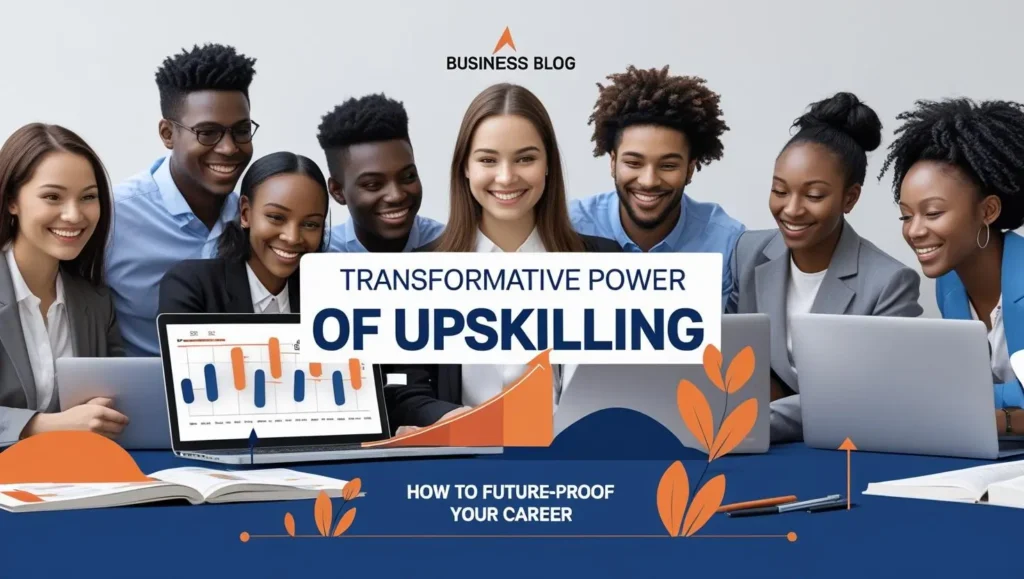
Remember a time when a college degree felt like a lifelong career ticket? Until a few decades ago, acquiring a professional college degree could secure one’s career entirely. My father had only a diploma in engineering, and he successfully navigated his entire career with a degree and some additional training here and there.
However, the whole world is changing rapidly now. The certainty of a college degree as a lifelong ticket for a career has faded drastically. Continuous learning is not just an advantage; instead, it has become a crucial survival skill in a world driven by relentless change, fueled by advancements such as artificial intelligence, automation in almost all aspects, and the emergence of entirely new digital platforms.
We are witnessing a seismic shift in the employment market. New and sophisticated tools, such as generative AI and integrated platforms like Salesforce, are changing the way businesses operate.
It has revolutionized everything from data analysis to customer engagement and services. Those tasks that were once performed manually have been increasingly automated.
Those skills that were once helpful for a professional as a top performer in the past can quickly get outdated today or tomorrow. And that’s where upskilling comes in. Simply put, it’s the process of strategically building new skills and improving existing ones to grow, remain relevant, competitive, and valuable in your career. It’s about proactively future-proofing your professional journey.
In this post, we will explore why upskilling is essential, how to pinpoint the right skills to learn, what practical resources can support your development, and the powerful benefits it brings, from accelerated career growth to genuine peace of mind in an ever-changing professional landscape.
Why Upskilling Isn’t Optional Anymore
Whether you are a mid-career professional or a business leader, you have likely observed the changes that new technologies, such as AI, automation, and big data, have brought.
These are not merely a fad or trend; they are transforming entire industries and redefining job roles. Such changes are on a massive scale and are reshaping what leadership and performance look like today.
Customers’ expectations have taken a new level. Things like 10-minute deliveries, real-time support, no-hassle returns, instant feedback, etc. I have become a frequent buyer on the Zepto online platform in India. They deliver things in 6 minutes in my area.
Organizations are forced to race to keep up with such expectational dynamics. The ripple effect?
Traditional ways of working are quickly becoming outdated, while teams are expected to move faster, think smarter, and adapt constantly. If you are not growing, you are not just falling behind competitors—you are falling behind the pace of change itself.
Upskilling is not just a nice-to-have; it is your strategic edge. It helps you stay relevant, lead with confidence, and build a career that endures over time.
For professionals in mid-career stages, it brings renewed energy, sharper decision-making, and increased job security. If you want to develop a specific expertise that sets you apart, read Master Your Hip-Pocket Skill: Become Indispensable.
For leaders, it is a way to remain relevant and up-to-date. It is a natural tool for them to enhance their credibility and ability to guide teams through uncertainty. Upskilling helps them revise and refine their visions.
Upskilling opens doors to new roles and opportunities in various industries. A marketing leader who embraces analytics can drive a data-backed strategy. An HR head adopting HR tech can influence organizational design. Such transitions in your career broaden your scope and increase the probability of your promotions, and consequently, your growth in terms of positions and earnings.
Beyond the business case, continuous learning fosters personal growth, boosting confidence, mental agility, and professional influence. In today’s volatile market, upskilling isn’t just an option—it’s the leadership muscle that keeps you relevant, competitive, and respected.
Identifying In-Demand Skills: What to Learn?
Upskilling is critical, but what you choose to learn matters just as much as the decision to learn. With time and energy being finite, the key is to invest in skills that are relevant, strategic, and aligned with both your current role and future aspirations.
Start with Industry Trends
Begin by exploring what the market demands today—and, more importantly, what it will demand tomorrow. Emerging technologies, rapidly changing consumer behaviors and expectations, and new business models are reshaping skill requirements at all levels.
Use tools like LinkedIn Learning Insights, Google Trends, and job postings across platforms to spot recurring skills listed for roles you are aiming for. These insights will help you identify current gaps and anticipate future trends. Pay attention to what’s becoming non-negotiable in your industry—be it AI literacy, data-driven decision-making, or digital transformation know-how.
Balance Hard and Soft Skills
Professional growth requires a combination of both complex (technical) and soft (behavioral) skills.
You can consider the following skills, for instance:
- In-demand hard skills: Data Analytics, AI/Machine Learning basics, Digital Marketing (SEO/SEM), Cloud Computing, Cybersecurity, UI/UX Design, and Project Management software.
- Essential soft skills: Critical Thinking, Emotional Intelligence, Communication, Collaboration, Adaptability, and Creativity.
Both are equally important: while hard skills make you competent, soft skills make you valuable and promotable.
For a deeper look at how both skills and character shape true professional excellence, read: Develop Skills, Competence & Character for Excellence.
Assess Your Current Role and Industry
Ask yourself:
- What skill gaps are evident in my team or function?
- What recurring challenges could I solve with better tools or knowledge?
- What technologies or trends is my industry embracing that I’m not yet fluent in?
Have open conversations with managers, mentors, or industry leaders. Their feedback can help uncover blind spots and steer you toward relevant skills that matter most in your professional context.
Align with Your Passions and Strengths
The decision for upskilling should be conscious and deliberate. It shouldn’t be done for the sake of doing.
Ensure that what you pursue excites and energizes you. When upskilling aligns with your personal mission, values, or vision, your motivation will stay high, and your learning will be more sustainable.
Upskilling is undoubtedly an investment in your career progression. At the same time, it’s also an investment in living your purpose and legacy as a professional leader.
Upskilling feels more meaningful when linked to your purpose. Explore this further: The Power of Purpose: Unlocking Growth Through a Clear Why.
Your Upskilling Toolkit: Resources and Strategies
Once you have identified the skills you want to develop or strengthen, the next step is to map out a clear and practical learning plan. A significant part of that is selecting the right resources and platforms—this decision can have a substantial impact on the success of your upskilling journey.
The way you approach learning matters. Take the time to carefully explore your options, keeping your goals, schedule, and budget in mind. It is a crucial decision that shapes your learning journey.
Here are a few learning pathways worth considering:
Online Learning Platforms
Today’s digital landscape offers a wealth of learning opportunities:
- Coursera: It’s known for its partnerships with leading universities. Coursera provides high-quality courses and professional certificates across a range of disciplines.
- Udemy: Ideal for practical, job-ready skills with thousands of affordable courses taught by industry practitioners.
- Udacity: Offers specialized “nanodegree” programs, powerful in technology domains like data science, AI, and cloud computing.
- LinkedIn Learning: Great for business, technology, and creative skills. Courses are often concise and tailored to industry needs, and access may be included in a LinkedIn Premium subscription.
Specialized Learning Platforms
Explore these platforms for focused learning in a specific domain. Many of them also offer valuable free introductory modules.
- HubSpot Academy: Excellent for mastering inbound marketing, sales, and customer service skills.
- Google Digital Garage: Offers a wide array of courses, including digital marketing, data analysis, and tech, all for free.
- Salesforce Trailhead: It’s a gamified and engaging way to learn Salesforce CRM and related cloud technologies.
Certifications & Bootcamps
Certifications and boot camps provide specialized pathways for developing specific skill sets in critical or specialized roles.
- You can consider programs such as PMP for project management, Google Analytics Certification, or AWS certifications for cloud-related roles.
- However, you should weigh the costs and time commitment against the industry recognition and potential return on investment. Also, ensure these credentials are valued within your current or desired organization.
Company-Sponsored Training Programs
Usually, organizations support employee development through internal training programs and financial aid for external courses or certifications. It’s a good idea to reach out to your HR or Learning and Development (L&D) team to explore the available options.
You might find opportunities such as:
- In-house training modules are designed to build role-specific skills
- Sponsored access to courses from reputable institutions or online platforms
These options provide a practical, affordable, and highly relevant way to advance your career.
Mentorship & Networking
It is always effective to learn from seasoned professionals, as they can accelerate your development.
- Seek mentorship within your organization or professional network,
- Join industry associations or online forums where insights and opportunities are regularly shared. This form of learning is often informal yet powerful.
Reading & Self-Study
Never underestimate the power of disciplined self-study. Regularly engaging with:
- Books,
- Industry blogs,
- Research papers,
- Curated newsletters can help you stay informed, sharpen your thinking, and stay ahead of industry trends.
Practical Application
Finally—and most importantly—learning must be followed by doing. Apply new knowledge by:
- Taking on new responsibilities at work,
- Leading side projects,
- Volunteering for initiatives where your new skills can be tested. And here, the fundamental transformation happens. As the saying goes, “Practice makes perfect.”
Making Upskilling a Habit: Continuous Learning
Upskilling is not just a passing trend—it is a long-term investment in yourself. More than that, it should become a steady, ongoing habit.
As the saying goes, “Learning is a lifelong journey.” To make continuous learning a natural part of your routine, try this approach:
- Set SMART Goals: Create clear learning goals that are Specific, Measurable, Achievable, Relevant, and Time-bound. Clear goals keep you focused and accountable.
- Make Time for It: Even 15 to 30 minutes a day can add up over time. Start small and adjust as needed based on your schedule and workload. Consistency is what makes it stick.
- Stay Curious: Cultivate a Growth Mindset. Curiosity helps you stay open to new ideas and learn naturally as part of your daily experiences.
- Track Your Progress: Reflect on your performance in real-life situations—such as projects, meetings, or collaborations. Keep celebrating small wins to stay motivated, and it reinforces positive momentum.
Don’t Fear Failure: Every learning curve includes obstacles. Feeling overwhelmed is normal, but persistence is key. Embrace setbacks as part of the process—they often teach more than success.
With consistency and intention, continuous learning becomes second nature—and a true differentiator in your professional journey. To develop a strong learning habit, your daily actions are crucial. For insights, read Habits Build Success: What You Do Daily Defines Your Career.
Conclusion: Start Where You Are, But Start Today
In today’s dynamic world, upskilling is no longer optional—it’s the bridge between where you are and where you want to be.
We have explored and discussed why upskilling matters, how to identify the most relevant skills for your journey, and practical resources to help you grow.
In times of change and uncertainty, continuous learning becomes one of your greatest strengths—whether you are a mid-career professional rethinking your path or a leader preparing your team for what is next.
But upskilling is about more than job security or career progression. At its core, it is about staying curious, building resilience, and continuing to grow—not just in your work, but in who you are becoming.
So, what’s stopping you? Set a small goal, pick one new skill, and begin today.
What skill are you committed to learning this month? Share your thoughts—or your favorite upskilling resource—in the comments. If you found this post valuable, subscribe for more insights on career growth, leadership, and purposeful learning.
Your next big breakthrough could start with the smallest step today.
To learn more about my work and leadership insights, visit About Me.
If you would like to share your story or collaborate, please feel free to Contact Me.
Disclaimer: This article is based on personal experience and insights. It does not constitute financial, legal, or medical advice.





